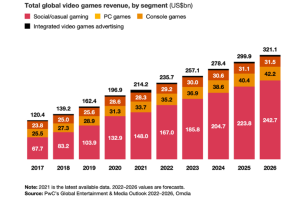
Gaming has come a long way, and with the rapidly advancing technology, the debate between gaming laptops and desktops grows stronger. Each option has its unique advantages and disadvantages that cater to different needs and preferences of gamers. In this article, we will explore the pros and cons of gaming laptops and desktops, helping you make an informed decision when it comes to choosing your gaming setup.
Portability
Laptops
One of the significant advantages of a gaming laptop is its portability. You can take your gaming experience with you wherever you go. Whether you’re travelling, visiting friends, or attending LAN parties, a gaming laptop allows you to stay connected to your games and community. Furthermore, modern gaming laptops are becoming thinner and lighter without sacrificing performance, ensuring that you can enjoy a seamless gaming experience on the go.
Desktops
On the other hand, desktop PCs are bulkier and not designed to be portable. You’ll need a designated space to set up your desktop gaming rig. However, this downside is offset by the advantage of better customization options and superior performance.
Performance and Upgradability
Laptops
Gaming laptops have made remarkable advancements in recent years. With cutting-edge processors, high-speed RAM, and powerful graphics cards, laptops can provide a considerable gaming experience. However, due to their portability, gaming laptops generally come with limited upgradability. While you can often upgrade RAM and storage, tweaking other components like the graphics card or processor may not be possible, or the options may be limited.
Desktops
Desktops excel in both performance and upgradability. With more space for larger components, desktop PCs offer better cooling, which enables higher levels of performance. Furthermore, desktops allow for easy customization and upgradability. You have the freedom to swap out or upgrade individual components to ensure your rig stays up to date with the latest technology.
Display Options
Laptops
Gaming laptops generally feature built-in displays that offer convenience and portability. You don’t need to worry about an external monitor unless you prefer a larger display size. However, keep in mind that smaller screens on laptops may compromise the immersive gaming experience.
Desktops
Desktop gaming setups provide more flexibility when it comes to display options. You can choose from a wide range of monitors, taking advantage of larger screen sizes, higher resolutions, and faster refresh rates. Additionally, multiple monitor setups are more accessible on desktops, enhancing your gaming experience and productivity.
Price
Laptops
Gaming laptops tend to be more expensive than their desktop counterparts. The compact design, portability, and high-performance components make them pricier. Additionally, upgrading laptop components can often be more costly due to limited options and higher costs associated with specialized components.
Desktops
Desktop PCs offer better value for money in terms of raw gaming performance. They are typically more affordable compared to laptops with similar specifications. The ability to upgrade individual components over time also allows you to spread out your investment and avoid needing to purchase an entirely new system.
Conclusion
Choosing between a gaming laptop and a desktop ultimately depends on your specific needs and preferences as a gamer. Gaming laptops offer portability, allowing you to play on the go, whereas desktops provide more options for customization, superior performance, and better value for money.
If you frequently travel or require flexibility in your gaming setup, a gaming laptop may be the better choice for you. However, if you prioritize raw power, upgradability, and more display options, a desktop PC is likely to fulfill your needs. Ultimately, both options can provide an enjoyable gaming experience; it’s a matter of finding what suits your lifestyle and gaming style best.


